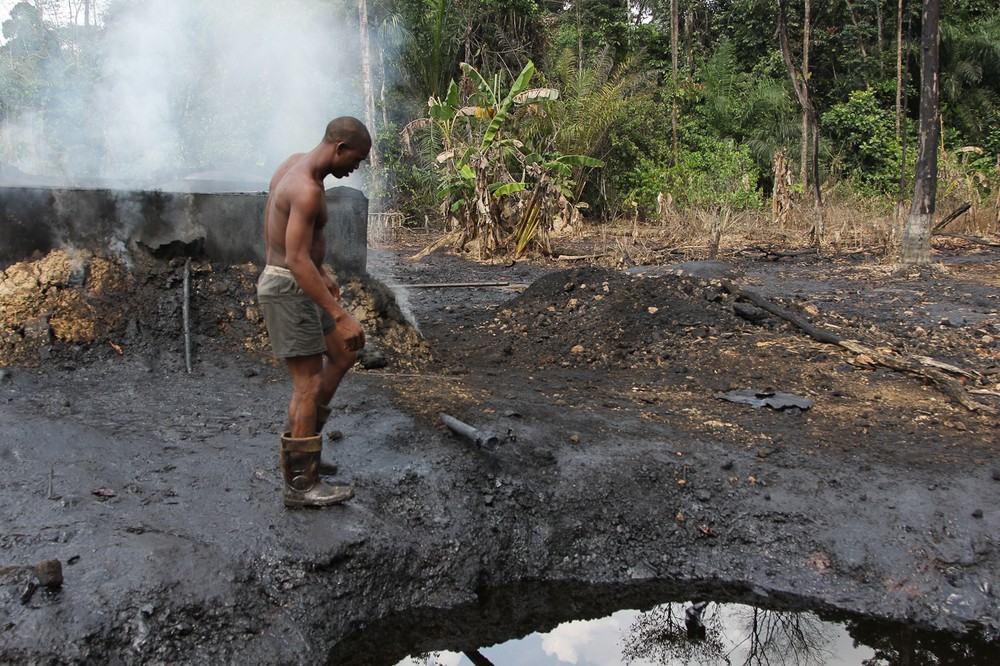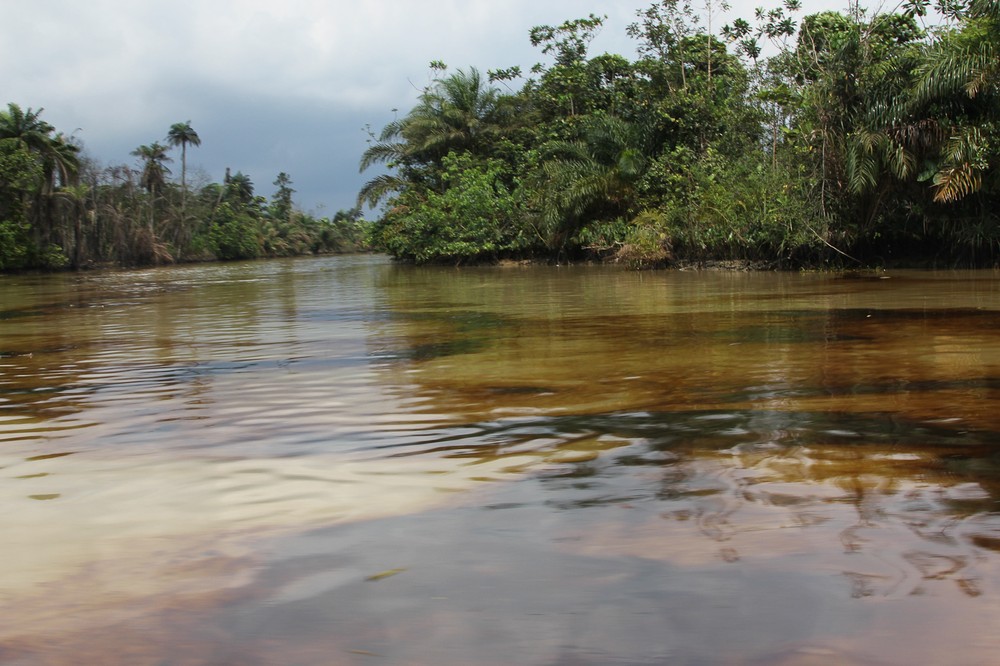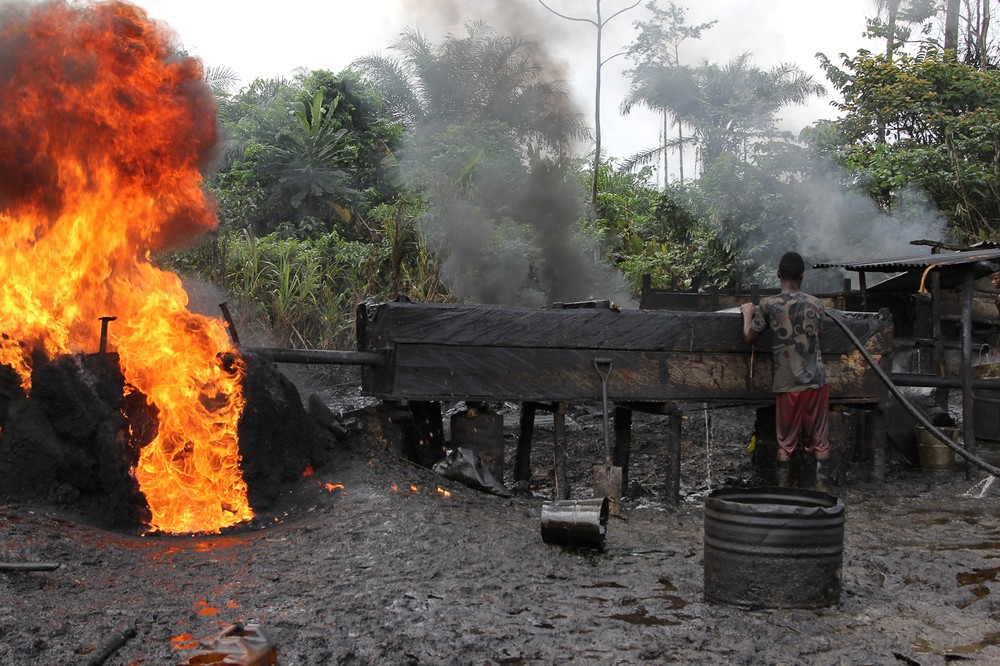


AL JAZEERA English


| Nigeria's oil-rich Niger Delta region is losing its battle against organised oil theft. According to the managing director of the Shell Petroleum Development Company, Mutiu Sunmonu, oil theft by local groups currently results in a total of $6bn per year in lost revenue to the corporate giant. Other major oil companies have also said they were losing a huge amount of money due to oil theft, and are paying huge amounts for security. The "blood oil" industry, a term coined by Nigerian President Goodluck Jonathan, is reportedly run by armed groups as well as activists calling for a fairer distribution of the country's enormous oil profits. The majority of Nigeria's 160 million citizens live in poverty - despite being residents of Africa's biggest oil producer. Zoin Ibegi is a resident of the region. "Many of us live [on] less than one cent a day despite being blessed with crude oil," he said. "This forces many of us into the illegal refinery business because we can't continue in poverty." The Nigerian government has deployed soldiers to the restive region to eradicate these "firewood distilleries", as they are commonly known. When an illegal oil refinery is located, those involved are arrested and the refinery is burnt down. According to Onyema Nwachukwu, a spokesman for Nigeria's Joint Task Force, such methods are used in order to make it difficult for perpetrators to return to the illicit oil extraction trade. In 2009 an amnesty was declared, paying off people who had been engaged in "oil bunkering": stealing and selling oil, then sharing the profits with the community. However, the siphoning of oil and makeshift oil refineries are only part of the problem. Oil-producing areas also suffer from high levels of pollution, and Ibegi says the liquid often spills into rivers used for fishing. Many observers believe that the 2009 amnesty is not working, claiming it is just a way to buy off "troublemakers". They argue that ultimately, the core problems affecting people in the Niger Delta - poverty and inequality - have not been addressed. |
View As Slideshow >>

Tife Owolabi/Transterra Media
A worker at an illegal refinery camp inspects refinery equipment as smoke emerges from behind drums, near the Nun River in Nigeria's oil state of Bayelsa.

Tife Owolabi/Transterra Media
A boat driver, David Sowawi, drives past an illegal refinery along the Nun River that has just been set ablaze by the military authority in the Niger Delta.

Tife Owolabi/Transterra Media
An oil slick covers lengthy parts of the river. Regular oil spills have badly damaged local ecosystems, killing off fish and forcing people to move.

Tife Owolabi/Transterra Media
An illegal refinery worker, John Sowawi, pumps water into the distilling equipment that is used to refine the stolen crude oil.

Tife Owolabi/Transterra Media
Fifty-year-old Tula Ebiowei carries an empty oil container for it to be filled with refined product.

Tife Owolabi/Transterra Media
Ebiowei and his colleague work along the Nun River in Nigeria's oil-rich state of Bayelsa.

Tife Owolabi/Transterra Media
John Tarila fills a container with refined PMS product before shipping it out to end users along the river. The locals say they make enough money from the business to escape poverty.

Tife Owolabi/Transterra Media
Many people living in the region live in abject poverty, and basic amenities are often lacking.
|
No comments:
Post a Comment